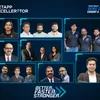Six cohorts, 30 startups: how Electropreneur Park incubates electronics and smart systems startups
Electropreneur Park Delhi is launching its seventh cohort of startups, with more ambitious targets set for the coming years. Find out more in this interview with its CEO, Sanjeev Chopra.
[This article is part of Startup Hatch, the YourStory series on incubators, accelerators, makerspaces, and coworking spaces in the startup ecosystem.
See earlier profiles of initiatives at IIT Bombay, IIM Bangalore, BITS Pilani, NCL, Tata Elxsi, Axilor, NID, IIIT-Bangalore, IIIT-Hyderabad, Vellore Institute of Technology, PSG Coimbatore, Workbench Projects, Makers Asylum, NetApp Excellerator, TechStars, Indigram Labs, WeWork, Z Nation Lab, Sandbox Startups, Brigade REAP, Target India Accelerator, Maersk, Anthill Studio, UnternehmerTUM, AZO, EXIST, InsurTech Hub Munich, CoWorks Foundry, and Ashoka Innovators.]
Inaugurated and launched in 2016, the incubator Electropreneur Park (EP), Delhi, is managed by Software Technology Parks of India (STPI). Its partners are Delhi University and India Electronics & Semiconductor Association (IESA), with the aim of nurturing ESDM (Electronics System Development and Maintenance) startups in India.
EP has completed six batches of incubation, with 32 graduated startups, and an additional eight startups mentored in other programmes.
Built over a space of 10,000 sq. ft, EP Delhi provides startups with access to labs, domain experts, supply chain partners, and services ranging from prototyping and patent search to legal and fundraising. Over the last five years, 21 new products and 25 working prototypes have been created, and 30 patents filed.
Incubated startups work in diverse areas: medical electronics, green technologies, mechatronics, security, robotics, edtech, hydroponics, and air pollution control. In addition to employment and revenue generation, impacts range from better pedagogy via educator training to lower pollution via electric vehicles. During the coronavirus pandemic, UV technology products were also created for effective sanitisation.
Sanjeev Chopra is the CEO of Electropreneur Park. He was earlier Managing Director of Ascom India, a subsidiary company of Swiss based company, Ascom. He has worked on a diverse range of product and solutions based on wireless technology, power supplies, service automation, and renewable energy.
He has over 25 years of experience in the field, with international exposure across Asia and Europe. He has a BE from Institute of Electronics and Telecommunication Engineers, BSc from University of Delhi, and MBA from Maharishi Dayanand University. Sanjeev joins us in this interview on the mission and achievements of EP, along with inspiring advice and tips for entrepreneurs.
Edited excerpts below.
YourStory [YS]: What was the founding vision of your incubator, and how is it supported?
Sanjeev Chopra [SC]: Electropreneur Park (EP), Delhi, was established to promote electronic product development startups, with an objective to create self-reliance in electronics, create intellectual property assets and high design capabilities, and develop unique global products for and from India.
To fulfil this vision, we were set a target to incubate 50 startups over a period of five years. Since the launch of EP in August 2016, we have already nurtured about 30 startups under various programmes.
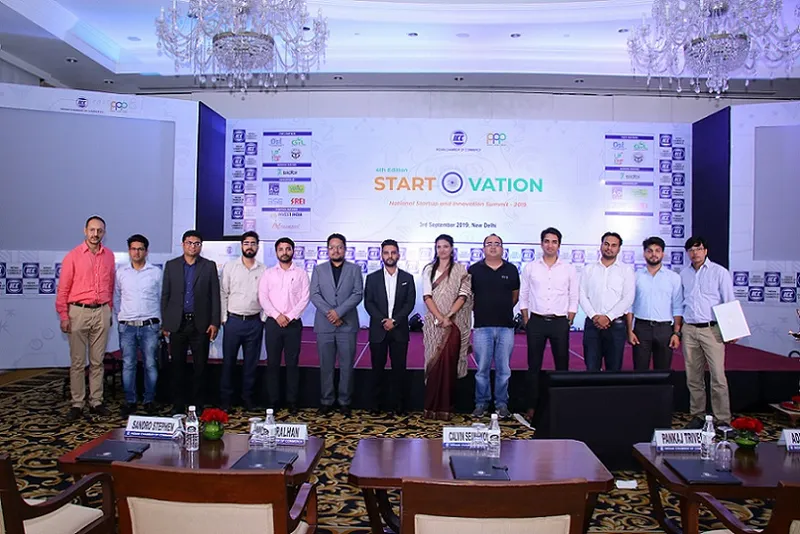
Startovation 2019 event
YS: What is the profile of the managers of your incubator?
SC: While EP is a project fully funded by the Ministry of Electronics and Information Technologies, it is managed by STPI under the leadership of Omkar Rai, Director General, STPI. A governing structure is set in place to monitor the project, select the most promising startups, and take critical decisions. The project monitoring group is represented by experienced industry leaders and successful entrepreneurs.
India Electronics and Semiconductor Associated (IESA) plays an important role as an implementation partner to provide access to industry networks and the ESDM ecosystem. The academic partner, University of Delhi, offers a pool of promising startups; various students pursing post-graduation are also engaged as interns with the selected startups at EP.
YS: What are the key challenges faced by startups in India, and how can you help bridge the gap?
SC: One of the key challenges faced by hardware-based startups is the need to first invest Rs 10 to 15 lakh in hardware test equipment or get access to facilities with advanced test equipment. We offer free access to our state-of-the-art lab infrastructure with design tools, embedded design kits, prototyping equipment, and various test equipment.
In addition to expert technical guidance and business mentorship, we invest quite a lot of time and effort to ensure our startups can present developed solutions to potential customers, industry, and investors.
YS: What are the unique challenges for social entrepreneurs as compared to tech or profit-led enterprises?
SC: While we definitely look for startup ideas with high social impact, we incubate startups that can create a profitable and sustainable business venture. The biggest challenge for a startup more focused on social problems is sustainability in business model.
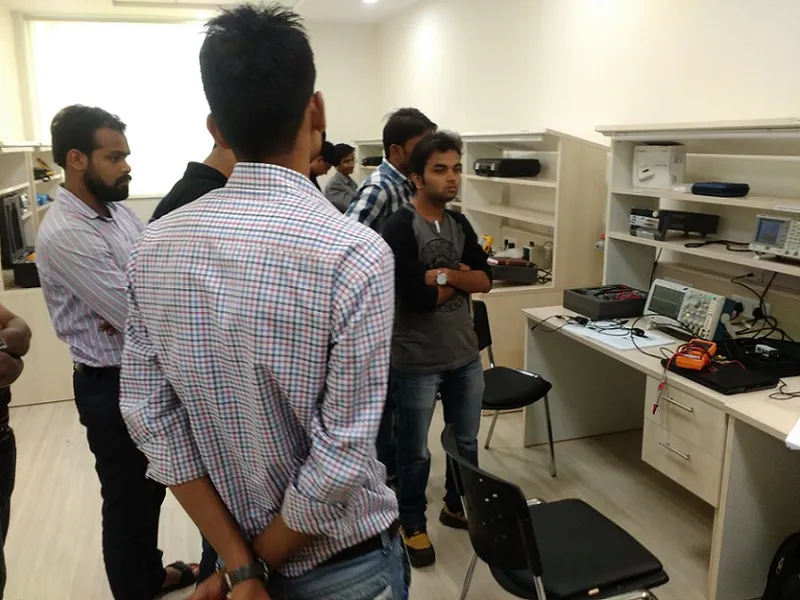
Lab facilities (1)
YS: What is the selection criteria for startups in your incubator?
SC: While selecting a startup, we look for innovation, uniqueness of idea, business potential, team capabilities, and feasibility of the project to create a sustainable business venture within one or two years. We also ensure that we are able to offer the required mentorship and facilities in the technology area of startups we incubate.
A startup also is required to present a validated proof of concept (PoC). However, in case we find the team and startup idea promising but PoC is not validated, we offer a pre-incubation programme in which a startups gets free access to labs and mentorship for three to six months to demonstrate a successful PoC.
YS: Who are some of your institutional partners?
SC: Besides the key project stakeholder – namely STPI, IESA and University of Delhi – we also have agreements with a few other prominent incubators and industry partners such as Infineon Technologies.
We have senior representatives from technology companies such as Cadence, Intel, Texas Instruments, ST microelectronics, Arrow Electronics, and many others actively supporting this initiative.
YS: What support and services do startups receive in your incubator?
SC: As part of our incubation programme, we provide an excellent work environment by way of furnished office space and access to in-house, state-of-art RF and power laboratories. Startups get mentorship by domain experts from industry and academia, and access to an efficient supply chain and ecosystem that supports a bouquet of shared services and facilities.
Examples of services for incubatees include fast prototyping, taxation, legal, finance, accounting, patent search, training, interns, business counselling, and opportunities to mobilise funds through a network of investors.
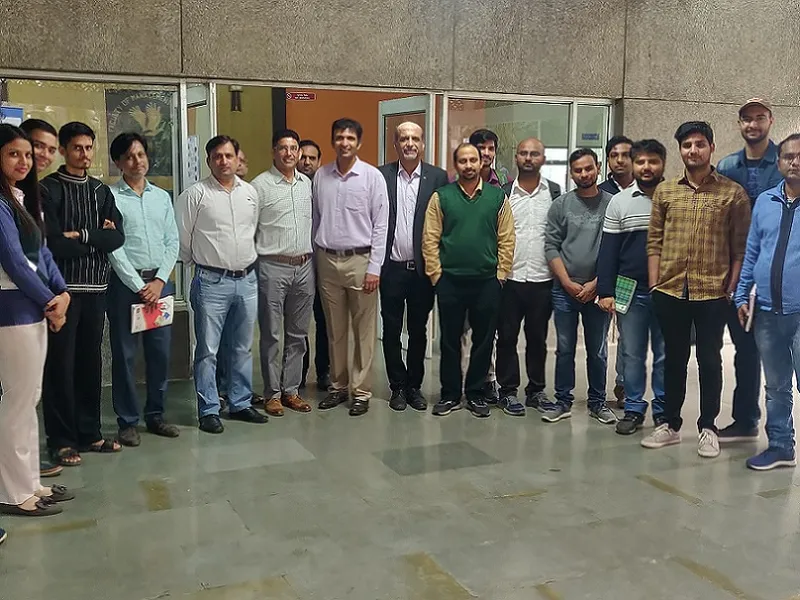
Startup founders with Sanjeev Chopra (centre)
YS: What percentage of equity do you take in your startups?
SC: Since startups have limited financial resources, we do not charge startups for using the office space, lab facility or mentoring workshops conducted in the course of the incubation programme.
However, to create sustainability for the programme, we do take an equity in the range of five to 10 percent depending on the startup, prior or post external funding within the set time frames. However, this model is slightly different for EP launched in Bhubaneswar in December 2019.
YS: What kinds of IP are being created by your startups?
SC: As our startups are focusing on creating an immediate business, the IPs created at EP are more on the intellectual methodology used in creating the product rather than the primary technology concepts as filed by researchers.
YS: How would you differentiate your incubator from others in the field?
SC: Conventionally in India, incubators have been driven by education institutes and incubated software, product, or service startups. EP at the time of launch was a one-of-its kind incubator operated in a collaborative manner with industry and academic organisations.
Based on the success of this pilot project, STPI is now implementing similar models focused on specialised industry verticals in various CoEs being launched all over India.
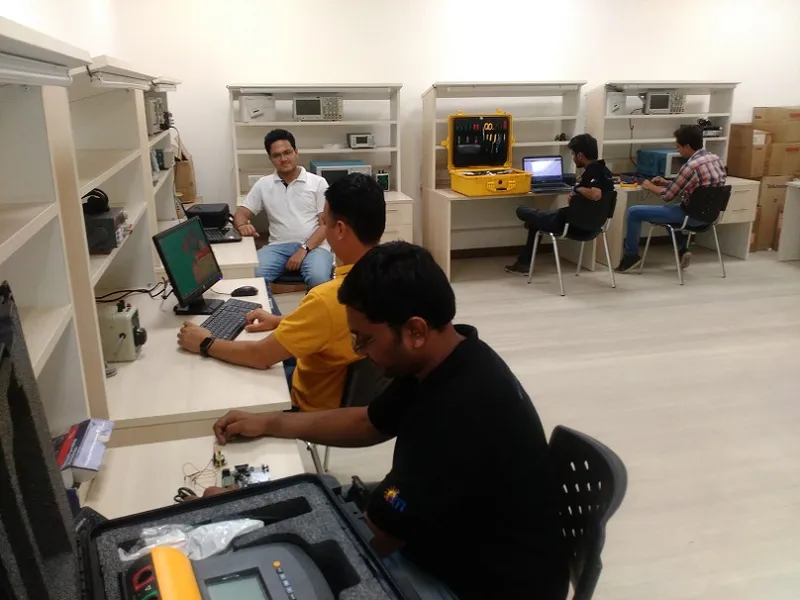
Lab facilities (3)
YS: What are some challenges you face, and how do you plan to overcome them?
SC: As our project is fully funded by MeitY, we need to adhere to the limited budget that had capital provisions for the state-of-the-art lab and infrastructure for startups, but not for seed funding.
We subsequently tapped CSR funds from industry bodies to provide some amount of seed funding to startups. We are definitely looking forward to more corporates to come forward, since an electronic product-based startup needs a considerable amount of seed funding to demonstrate the success of the business model before it gets external funding from managed funds or institutional investors.
YS: What would you define as success for your incubator?
SC: EP has been operational at Delhi since April 1, 2016, and has already nurtured 40 startups with a success rate of more than 70 percent among graduated startups, who are either funded or generating revenues.
Our startups have created 25 products, a collective valuation of more than Rs 250 crore, generated revenue of more than Rs 43 crore, and filed 30 patents in the last four years of operation.
YS: Which are some of the most notable startups who have graduated from your incubator?
SC: STEMROBO Technologies has been selected under the ‘Make in India’ mission. It also features in the ‘Indicative List of Vendors’ for ATL equipment as mentioned under Atal Tinkering Lab scheme of NITI Aayog.
Other notable startups are Iotomation Ecotech, EVI technologies, GenElek Technologies, Fitnano Technologies, and AJ Simply Purify.
YS: How do you compare and contrast your incubator with others?
SC: We offer world-class infrastructure to our startups and probably have more experienced mentors than many incubators in the world.
We already have MoUs and mentorship support from prominent semiconductor industry players in India. We are working towards increase in seed funding to match leading incubators in US.
YS: What are your plans for the coming three to five years with respect to new startups?
SC: After the successful onboarding of six cohorts, we have now launched the invitation of proposals for Season 7, and are looking forward to find 10 more startups for this batch.
We are also expecting our first exit in terms of our equity share by the end of this year, and a few more exits in 2021.
YS: What challenges has COVID posed for Indian startups? And at the same time, what new opportunities are opening up?
SC: The current challenges on account of COVID-19 have created many business opportunities, which can be scaled up quite fast as current customer’s priorities and prevailing business models were never contemplated.
Four of our startups are already actively working on solutions to address these problems. For example, Arista Vault in September launched a ‘Shuddhi Basket’ to sterilise groceries, office gadgets, and files. Another startup is integrating solutions to detect COVID-19 patients in corporate buildings, and yet another startup is working on robotics solution to sterilise the office environment.
YS: What are your recommendations for Indian policymakers to make business easier for incubators, investors, researchers, and startups in India?
SC: Quite a few initiatives like policy on public purchase and Make in India drive are already in place. We need to work more towards effective and extensive implementation of the same.
YS: What are your recommendations or words of inspiration to startups and entrepreneurs?
SC: A startup journey is full of challenges and can be frustrating at times. But if you have the right product idea, skill to transform your idea to a product or solution, motivation, and a mentoring team, there is lot of help made available to you via incubators.
An incubator not only validates your idea at the time of selection, but also increases your chances of success.
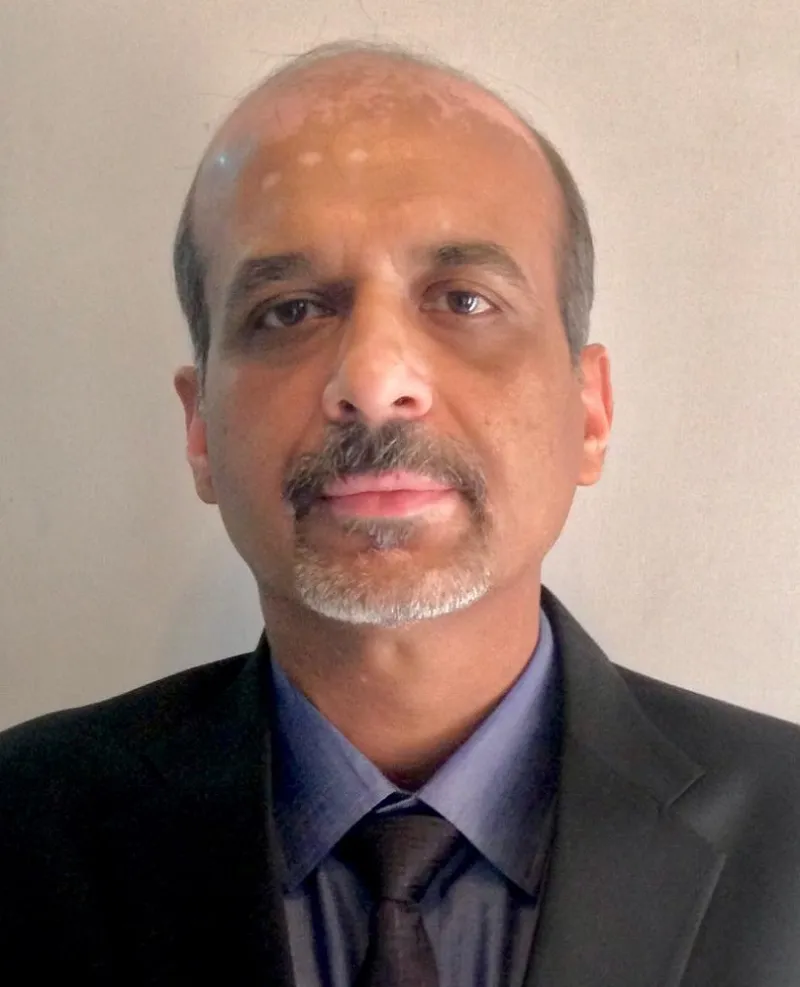
Sanjeev Chopra, CEO, Eletroprenuer Park
YS: Which startups have graduated from your incubator so far in each cohort? Please share brief profiles of each.
SC: Since 2016, more than 25 startups have graduated from EP across five seasons or cohorts. Eight other startups received mentoring support in the year 2016-17: Matador (low-cost domestic solar kits), Elsys (onboard crash detection system for vehicles), Sagar Defence (control systems for unmanned or autonomous vehicles), Saksham (smart watch for emergencies for children and elders), Starszy (charging dock for drones), Intuitive Thinkers (safety wearables for women), Raju Brothers (biometric smart card), and Vadactro (IoT-based energy control devices).
Season 1
CEANTRA Technologies (founded by Rajeev Tiwari and Anurag Gupta) has developed a vehicle platform to monitor vehicle health and driver behaviours. Its IoT solutions can also be used for connected fleets, smart homes, cities, and agriculture.
Resonant Electronics (founded by Anubhav Goel and Amit Goel) has developed modular switchboards and analytics for energy management and control systems.
Arogya MedTech (founded by Abhijit Das and Rajib Sengupta) has developed affordable medical devices for neuroimaging using multi-modal technologies. The product, CEREBROS, will help in early screening and triaging neurological emergency at the point of care, specifically among high-risk populations (geriatric groups).
Season 2
STEMROBO Technologies (founded by Anurag Gupta and Rajeev Tiwari) has developed STEM education kits for robotics and design.
Univlabs Tech (founded by Sunil Singh) has developed medical equipment and accessories for endoscopy and laproscopy. Other offerings are an insulin patch pump and non-invasive continuous glucose monitoring.
Starbru Techsystems (founded by Ashutosh Rai and Naval Jain) is developing tactical android wireless data cards for army radio to send images in an efficient and secure manner.
Fitnano Technologies (founded by Tarun Shekhar) is developing safety IoT wearables for children, elderly, women and pets, eg. Kidfit GPS watch for children that keeps parents connected with children all the time through their mobile devices.
Season 3
Iotomation Ecotech (founded by Dharmendra Rathore) is developing IoT-based distributed asset automation solutions for smart living, including building and energy management in commercial and industrial spaces.
AJ Simply Purify Technologies (founded by Vivek Pandey) is providing affordable solutions for air pollution control and monitoring in homes and commercial establishments.
Doorastha Analytics (founded by Shyamal Datta and Atanu Mukerji) is developing energy usage monitoring solutions in a distributed grid to control power delivery to the end user, including solar grids.
EVI Technologies (founded by Rupesh Kumar, Aditya Raj Verma, and Vikrant K Aggarwal) has developed an electric vehicle (EV) fast-charging station.
VT Labs (founded by Sandeep Taneja) is developing high-efficiency power converters for industrial and commercial applications. Its patented switch architecture improves power topology and usage of data centres, leading to significant cost savings, greater reliability, and a reduced ecological footprint.
Season 4:
GenElek Technologies (founded by John Kujur) is developing cost-effective, light-weight exoskeletons for the differently-abled to enable them to walk or carry out daily lifestyle activities.
Trydan Motors (founded by Manoj Rampravesh Sharma) is manufacturing e-bikes and e-scooters, and components like motors, controllers, batteries, and chargers.
Concinnity Agro2o (founded by Yash Vyas) is an agritech startup using sensors, advanced hydroponics, and intelligent growing algorithms for individual or commercial farming.
Geneorigin Business Solutions (founded by Amit Tuteja and Ashish Gupta) is developing a wearable health monitoring device that tracks indicators as per Ayurveda and modern medicine.
ODO Informatics (founded by Sharad Mishra) is developing non-invasive, wireless, and cable-less cardiac activity monitoring device to detect cardiac events like arrhythmia.
Sasakyan Technologies (founded by Soumendra Kumar Bagh and Bindu Madhavi) was also in this batch.
Season 5:
Quikproto Research (founded by Neha Chaudhary and Prerna Chaudhary) provides a platform for secure data storage and management, along with digital rights management.
NextLeap Aeronautics (founded by Alvin Anthony, Nilofar Barchan, and Shriram R) is building avionics technology for sustainable air transportation, eg. electric aircraft, air ambulances, urban air taxis.
Dweepi Innovations (founded by Goli Jyosthna and Saraswathi Panithapu) provides middleware and firmware solutions in electronics, including apps for embedded systems.
Other startups in this batch are Star Technologies (founded by Vaibhav Sharma and Akshay Raj), and pre-incubation startups LEP-o-CUP Assis Tech (founded by Abuthahir), Xampere Flatcharge (founded by Suryansh Mishra and Rahul Maurya), and Cook It (founded by Akash Singh , Abhishek Joshi and Manu Sehgal).
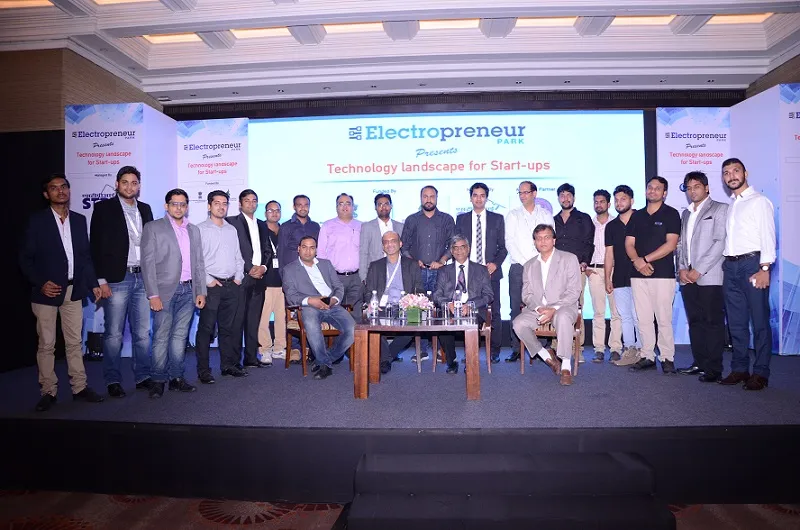
Graduated startups from EP
YS: Which startups are currently being incubated?
SC: Here are the five startups in the current season. There are also two startups in pre-incubation phase: DCAC Electric (low-cost inverter for inductive loads) and E2EM (portable e-moped).
Electrifuel Private (founded by Anita Bhardwaj, Ujjwal Bhardwaj, Abhishek Kumar, Sunil Kumar and Sumesh Kumar) is in the field of electric mobility, and is creating battery swapping and charging stations.
Navikarana Mednovation (founded by Tarun Verma and Yogesh Wadhwani) is building a range of robust solutions, including IoT-based pills storage and dispensing products for patients and hospitals.
Arivation Fashiontech (founded by Colonel (Retd) Krishan Kumar Singh, Purvi Roy and Sarojini Saroj Gupta) has developed solutions in sectors like security and health. These include intelligent anti-theft wallets and the Arista Vault Shuddhi Basket to sanitise objects.
AIGROEDGE Technologies (founded by Abhai Tiwari, Akshay Taneja and Mayank Rajput) is developing AI-powered intelligent farming kits based on IoT sensors and analytics.
Designers Charrette (founded by Prasad Joshi and Aryaman Jacob) builds portable devices to store insulin at low temperatures with IoT-based dosage management and analytics.
(Edited by Teja Lele Desai)



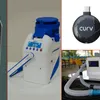
_Intel_India_Maker_Lab1560876160219.jpg?fm=png&auto=format&h=100&w=100&crop=entropy&fit=crop)

